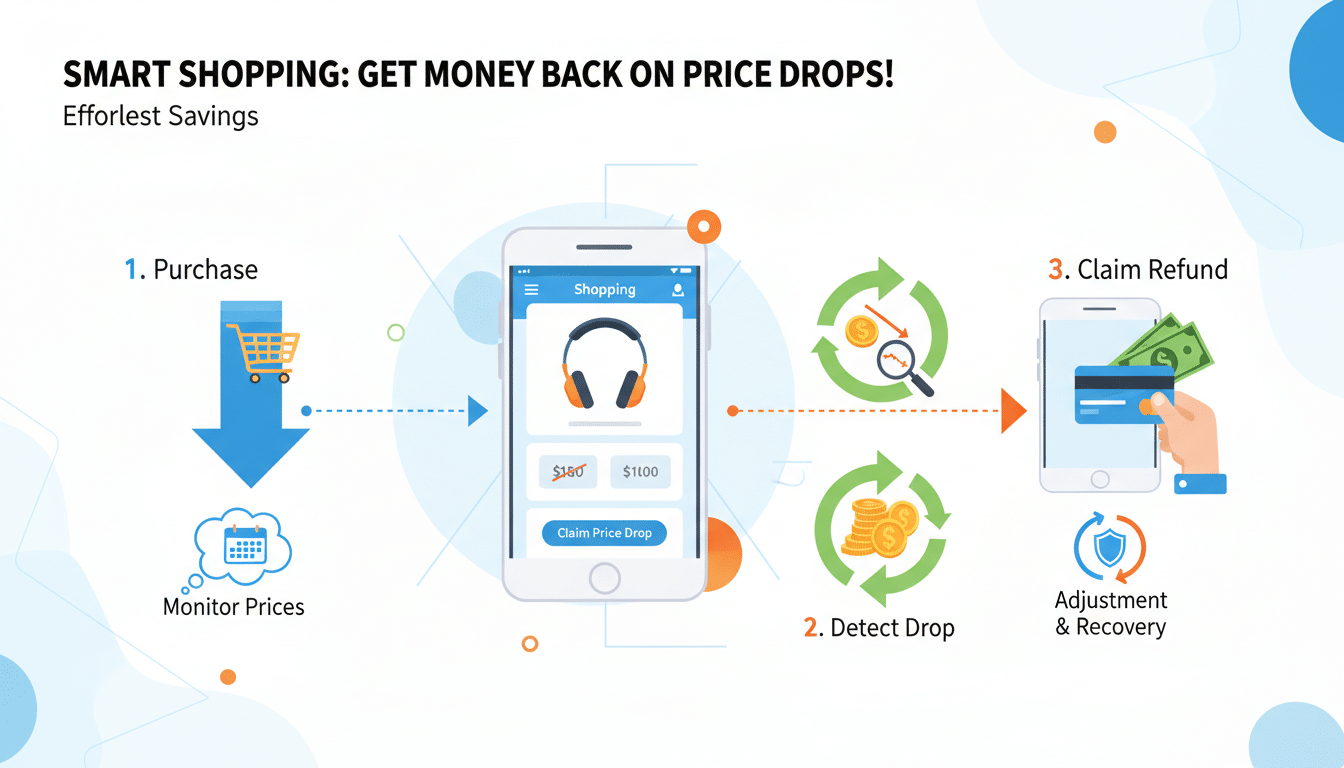Music has become an integral part of our daily lives, and the way we consume it has undergone a significant transformation. With the rise of music streaming apps, accessing millions of songs has never been easier.
These best music apps have revolutionized the way we experience music, offering personalized recommendations, playlists, and radio stations. Whether you’re a casual listener or a music enthusiast, there’s an app tailored to your needs.
Anúncios
Key Takeaways
- Discover the top music streaming services
- Learn about their unique features and benefits
- Find the best app for your music preferences
- Explore the various options available
- Get insights into the future of music streaming

Best Apps for Listening to Music
The Digital Revolution of Music Consumption
The digital revolution has dramatically altered how we consume music. With the rise of digital streaming platforms, the music industry has witnessed a significant shift from physical albums to digital formats.
This change has not only impacted how music is distributed but also how it is consumed. Digital streaming services have made it possible for users to access millions of songs from anywhere, at any time, as long as they have an internet connection.
Some key aspects of this revolution include:
- Increased accessibility to music libraries
- Personalized music recommendations based on listening habits
- The ability to create and share playlists
- Offline listening capabilities
The impact on music consumption habits has been profound, with many consumers opting for the convenience of streaming over purchasing physical albums. As a result, the music industry has had to adapt to these changes, focusing on digital distribution and streaming services.
Essential Features to Consider in Apps for Listening to Music
With numerous music streaming services available, understanding the essential features is crucial for an optimal listening experience. When choosing a music app, several factors come into play to ensure that your needs are met.
Sound Quality Options
Sound quality is a critical aspect for any music listener. Apps that offer high-definition (HD) audio or even lossless audio provide a more immersive experience. The availability of different sound quality options caters to various user preferences and internet connectivity.
Library Size and Variety
The size and variety of a music app’s library are vital. A larger library with a diverse range of genres and artists ensures that users can discover new music and access their favorite tracks. Some apps also offer exclusive content that can’t be found elsewhere.
User Interface and Experience
A user-friendly interface is essential for a positive experience. Intuitive navigation, personalized recommendations, and customizable settings enhance user engagement. The app’s design should be visually appealing and responsive.
Offline Listening Capabilities
The ability to listen to music offline is a significant feature, especially for users with limited internet connectivity. Apps that allow offline listening enable users to download music for playback without an internet connection.
Cost and Subscription Models
Understanding the cost and subscription models is crucial. Many apps operate on a freemium model, offering basic features for free and premium features for a subscription fee. Some apps also offer ad-supported options.
| Feature | Description | Importance Level |
|---|---|---|
| Sound Quality | Availability of HD or lossless audio | High |
| Library Size | Number of tracks and variety of genres | High |
| User Interface | Ease of navigation and customization | Medium |
| Offline Listening | Ability to download music for offline playback | High |
| Cost | Subscription fees and available plans | High |
Top Premium Music Streaming Services
For those willing to pay for a superior music experience, several premium services stand out. The top premium music streaming services offer a range of benefits, from ad-free listening to exclusive content.
Spotify Premium
Overview
Spotify Premium is one of the most popular premium music streaming services, offering users an ad-free experience, offline listening, and improved sound quality.
Features
Key features include Discover Weekly and Release Radar playlists, which provide users with personalized music recommendations. Spotify Premium also allows for offline listening, making it ideal for commutes or areas with poor internet connectivity.
Pros
- Personalized playlists
- Offline listening
- Ad-free experience
Cons
Some users may find the sound quality, while improved, not to be significantly different from the free version. Additionally, the cost can be a deterrent for some.
Apple Music
Overview
Apple Music is another leading premium music streaming service, offering access to millions of songs, playlists, and radio stations.
Features
Apple Music’s features include Beats 1, a live radio station hosted by popular DJs, and Friends Mix, a feature that allows users to share and discover music with friends.
Pros
- Exclusive content through Beats 1
- Large music library
- Integration with Apple devices
Cons
Apple Music’s interface can be overwhelming for some users, and its Android app, while functional, is not as seamless as on Apple devices.
Amazon Music Unlimited
Overview
Amazon Music Unlimited is a strong contender in the premium music streaming space, offering a vast library of songs and integration with Alexa.
Features
Key features include Alexa integration, allowing for voice control, and a vast music library that includes many songs and playlists.
Pros
- Seamless integration with Alexa
- Vast music library
- Competitive pricing
Cons
While Amazon Music Unlimited is powerful, its music discovery features are not as robust as some competitors, and the user interface can be cluttered.
In conclusion, each of these premium music streaming services offers unique benefits and drawbacks. When choosing, consider what features are most important to you, whether it’s personalized playlists, exclusive content, or voice control.
Best Free Music Apps
You don’t have to pay a dime to enjoy your favorite music, as several top music streaming services offer free versions with impressive features. While these free music apps come with some limitations, they are perfect for those on a budget or who don’t listen to music frequently enough to justify a premium subscription.
Spotify Free
Overview
Spotify Free is one of the most popular free music streaming services, offering access to millions of songs, playlists, and podcasts. It’s a great option for discovering new music and creating personalized playlists.
Features
With Spotify Free, users can:
- Stream millions of songs and playlists
- Create and edit playlists
- Discover new music through Discover Weekly and Release Radar playlists
- Listen to podcasts
Pros
The main advantages of Spotify Free include its vast music library, user-friendly interface, and personalized recommendations. It’s also available on a wide range of devices.
Cons
However, Spotify Free is ad-supported, which means users will encounter occasional ads between songs. Additionally, some features are limited compared to the premium version, and offline listening is not available.
YouTube Music Free
Overview
YouTube Music Free offers a vast library of songs, official albums, and singles, along with user-generated content. It’s a great platform for discovering new music and watching music videos.
Features
Key features include:
- Access to official songs, albums, and playlists
- Personalized recommendations based on listening history
- The ability to watch music videos
- Discover new artists and tracks
Pros
YouTube Music Free is backed by the vast YouTube ecosystem, offering a vast library of music content, including remixes, covers, and live performances. It’s also free, with optional ad-supported listening.
Cons
The app can be cluttered with ads, and the video content can sometimes be irrelevant or distracting. Offline listening is limited compared to premium services.
SoundCloud
Overview
SoundCloud is a unique platform that hosts a vast array of music content, from mainstream tracks to underground remixes and DJ sets. It’s a haven for emerging artists and those looking for something different.
Features
SoundCloud’s features include:
- Access to a vast library of music, including remixes and DJ mixes
- The ability to upload and share your own tracks
- Community features, such as following artists and reposting tracks
Pros
SoundCloud is renowned for its diverse music offerings and its role in promoting emerging artists. It’s also a great platform for discovering new genres and tracks.
Cons
The quality of tracks can vary significantly, and the platform is not as polished as some of its competitors. Some features are also reserved for paid subscribers.
High-Fidelity Apps for Audiophiles
In the realm of music streaming, high-fidelity apps stand out for their commitment to delivering exceptional audio experiences. These platforms cater specifically to audiophiles who demand the highest quality sound.
Tidal HiFi
Overview
Tidal HiFi is a premium music streaming service that offers high-fidelity audio. It is known for its high-quality sound that is said to be superior to standard streaming services.
Features
Tidal HiFi boasts a vast library of songs in lossless FLAC format, ensuring that the audio is delivered without any loss of quality. It also includes features like personalized recommendations and offline listening.
Pros
- Superior Sound Quality: Tidal HiFi’s use of lossless audio formats ensures that the sound quality is among the best available.
- Vast Music Library: With a vast collection of tracks, Tidal HiFi caters to a wide range of musical tastes.
Cons
- Cost: Tidal HiFi is a premium service, and its cost reflects the high quality it offers, which may be a deterrent for some users.
- Limited Discovery Features: While the sound quality is exceptional, some users feel that the discovery features could be more robust.
Qobuz
Overview
Qobuz is another high-fidelity music streaming service that is renowned for its extensive catalog and high-resolution audio options.
Features
Qobuz offers music in various formats, including high-resolution options that surpass CD quality. It also features a user-friendly interface and expert editorial content.
Pros
- High-Resolution Audio: Qobuz’s high-resolution audio is among its standout features, offering listeners a detailed and nuanced sound.
- Expert Editorial Content: Qobuz provides high-quality editorial content, helping users discover new music and artists.
Cons
- Complexity: The variety of audio formats and options can be overwhelming for some users.
- Availability: Qobuz is not as widely available on all platforms as some other music streaming services.
Amazon Music HD
Overview
Amazon Music HD is Amazon’s foray into the high-fidelity music streaming market, offering high-definition audio to its subscribers.
Features
Amazon Music HD features a large library of songs in high-definition, along with the convenience of integration with Amazon’s ecosystem.
Pros
- High-Quality Audio: Amazon Music HD delivers high-quality audio, making it a great option for audiophiles.
- Integration with Amazon Ecosystem: For those already invested in Amazon’s ecosystem, Music HD offers seamless integration.
Cons
- Limited Availability of HD Tracks: Not all tracks are available in HD, which can be a disappointment for some users.
- Interface: Some users find the interface less intuitive compared to other services.
Best Apps for Music Discovery and Recommendations
The quest for new music is a never-ending journey, and several innovative apps are leading the way in music discovery and recommendations. These apps not only help users find new tracks and artists but also provide a personalized experience tailored to individual tastes.
Pandora
Overview
Pandora is a pioneering music streaming service known for its personalized radio stations. It creates stations based on artists, songs, or genres, allowing users to discover new music within their preferred musical landscapes.
Features
Pandora’s key feature is its Music Genome Project, a sophisticated algorithm that analyzes songs based on various musical characteristics. This enables Pandora to create a unique listening experience for each user.
Pros
- Personalized radio stations
- Discover new artists and tracks
- Available on multiple platforms
Cons
- Limited on-demand listening in the free version
- Audio ads in the free version
Last.fm
Overview
Last.fm is another veteran in the music discovery space, known for its scrobbling feature that tracks users’ listening habits across different platforms.
Features
Last.fm allows users to create a profile that reflects their musical tastes, providing recommendations based on their listening history. It also has a social aspect, showing what friends and others with similar tastes are listening to.
Pros
- Tracks listening habits across platforms
- Provides recommendations based on detailed user profiles
- Social features to see what others are listening to
Cons
- Not as many features in the free version
- Some users find the interface dated
Spotify’s Discovery Features
Overview
Spotify has become a leader in music streaming, partly due to its Discover Weekly and Release Radar playlists, which are highly personalized and updated regularly.
Features
Spotify’s algorithms analyze users’ listening habits to create playlists that introduce them to new artists and tracks. Features like Discover Weekly and Release Radar are particularly popular among users.
Pros
- Highly personalized playlists
- Regular updates with new music
- Integrates well with other Spotify features
Cons
- Some users may find the recommendations repetitive
- Requires a premium subscription for full features
Specialized Apps for Niche Music Genres
Beyond the popular music streaming services, there exist apps tailored to specific genres, offering a more focused listening experience. These niche music apps cater to diverse tastes, providing a haven for enthusiasts of independent artists, DJ mixes, and classical music.
Bandcamp
Overview
Bandcamp is a platform that empowers independent artists by allowing them to sell their music directly to fans.
Features
It offers a wide range of genres and the ability to discover new artists.
Pros
Supports independent artists and offers a vast selection of music.
Cons
The user interface can be overwhelming due to the vast amount of content.
Mixcloud
Overview
Mixcloud is a platform for DJ mixes and radio shows, focusing on the community aspect of music sharing.
Features
It allows users to upload and share their mixes, as well as listen to a vast library of content.
Pros
Vibrant community and a vast library of mixes.
Cons
Limited on-demand listening capabilities.
Idagio (Classical Music)
Overview
Idagio is dedicated to classical music, offering a curated selection of recordings.
Features
It includes expertly curated playlists and high-quality audio.
Pros
High-quality audio and expert curation.
Cons
Limited library compared to larger streaming services.
Best Apps for Offline Music Listening
Offline music listening is a crucial feature for music enthusiasts who want to enjoy their favorite tunes without an internet connection. Several music streaming apps offer this capability, allowing users to download music for offline access.
YouTube Music Premium
Overview
YouTube Music Premium allows users to download songs, albums, and playlists for offline listening. This feature is particularly useful for those with limited internet connectivity.
Features
- Download songs, albums, and playlists
- Offline listening without internet connection
- Background playback
Pros
- Large music library
- Personalized recommendations
Cons
- Data-intensive downloads
- Limited audio quality compared to some competitors
Deezer
Overview
Deezer is another popular music streaming service that offers offline listening capabilities. Users can download music for offline access, making it suitable for commuters and travelers.
Features
- Download songs and playlists
- Offline listening
- Flow feature for personalized listening
Pros
- High-quality audio
- Discoverability features
Cons
- Not as many exclusive releases as some competitors
- Can be complex to navigate
Apple Music’s Offline Features
Overview
Apple Music allows subscribers to download songs, albums, and playlists for offline listening. This feature is integrated seamlessly into the Apple ecosystem.
Features
- Download content for offline listening
- Sync across Apple devices
Pros
- Seamless integration with Apple devices
- Large music library
Cons
- Limited availability on non-Apple devices
- Can be expensive for family plans
| App | Offline Listening | Audio Quality | Price |
|---|---|---|---|
| YouTube Music Premium | Yes | Up to 256 kbps | $9.99/month |
| Deezer | Yes | Up to 320 kbps | $9.99/month |
| Apple Music | Yes | Up to 256 kbps | $9.99/month |
Emerging and Innovative Music Streaming Apps
The world of music streaming is witnessing a surge in innovative apps that are changing the game. These new platforms are not only challenging the dominance of established players but also bringing fresh features and user experiences to the table.
Audiomack
Overview
Audiomack is a music streaming app that has gained popularity for its vast library and user-friendly interface. It allows artists to upload their music, making it a hub for both established and emerging artists.
Features
Audiomack offers features like offline listening, playlist creation, and a discovery section that recommends music based on user preferences.
Pros
- Large Music Library: Audiomack boasts a vast collection of songs, including tracks from well-known and up-and-coming artists.
- User-Friendly Interface: The app is designed to be intuitive, making it easy for users to navigate and find music.
Cons
- Limited availability in some regions.
- Ad-supported, which can be intrusive.
Resso
Overview
Resso is another emerging music streaming service that has garnered attention for its unique features, such as the ability to sing along with lyrics and a social aspect that allows users to share their favorite tracks.
Features
Resso’s features include lyric-based singing, social sharing, and personalized recommendations.
Pros
- Interactive Experience: Resso’s singing feature enhances user engagement.
- Social Sharing: Users can easily share their favorite songs on social media.
Cons
- Still expanding its music library.
- Some features are region-locked.
Trebel
Overview
Trebel is a music streaming app that focuses on providing a simple, intuitive experience. It allows users to download and listen to millions of songs for free.
Features
Trebel offers features like offline listening, playlist creation, and music discovery.
Pros
- Free to Use: Trebel is free, with optional premium upgrades.
- Easy Discovery: The app makes it easy to find new music.
Cons
- Ad-supported model.
- Limited premium features in the free version.
| App | Key Feature | Cost |
|---|---|---|
| Audiomack | Large music library | Free, with premium options |
| Resso | Sing along with lyrics | Free, with premium options |
| Trebel | Simple, intuitive interface | Free, with premium options |
Comprehensive Comparison of Music Streaming Apps
Selecting the right music streaming app depends on several key considerations. With numerous options available, comparing their features is essential to make an informed decision.
Subscription Pricing
Music streaming apps vary significantly in their pricing models. For instance, Spotify Premium and Apple Music offer individual and family plans, while Tidal focuses on high-fidelity audio with premium pricing.
- Spotify Premium: $9.99/month (individual), $14.99/month (family)
- Apple Music: $9.99/month (individual), $14.99/month (family)
- Tidal: $9.99/month (premium), $19.99/month (HiFi)
Audio Quality Options
Audio quality is a critical factor for many users. Apps like Tidal HiFi and Qobuz offer high-resolution audio, while others like Spotify and Apple Music provide standard and high-quality options.
| App | Max Audio Quality |
|---|---|
| Tidal HiFi | 1411 kbps |
| Qobuz | 192 kHz/24-bit |
Library Size and Exclusives
The size of the music library and exclusive content can influence the choice. Spotify and Apple Music boast large libraries, while Tidal and Amazon Music offer exclusive content.
Platform Availability
Availability across different platforms is crucial. Most apps are available on iOS, Android, and desktop, but some have better integration with specific ecosystems.
Unique Features
Each app has unique features, such as Spotify’s Discover Weekly or Tidal’s HiFi audio. Understanding these features can help in choosing the best app for individual needs.
Conclusion
With so many music streaming services available, selecting the best one can be overwhelming. This article has explored various options, from premium services like Spotify Premium and Apple Music to high-fidelity apps like Tidal HiFi and Qobuz.
When choosing a music streaming app, consider your priorities: sound quality, library size, user interface, and offline listening capabilities. If you’re an audiophile, high-fidelity apps may be the best choice. For casual listeners, free versions of popular services like Spotify and YouTube Music may suffice.
The best music streaming apps offer a unique blend of features, pricing, and music selection. By considering your needs and preferences, you can find the perfect service for your music listening habits. Whether you’re looking for discovery features, offline listening, or specialized genres, there’s a music streaming app available to meet your needs.
FAQ
What are the best music streaming apps?
How do I choose the right music streaming app for me?
Are there free music streaming apps available?
Can I listen to music offline with music streaming apps?
What is the difference between music streaming apps and high-fidelity music apps?
Are there music streaming apps that cater to specific music genres?
How do music streaming apps recommend music to users?
Can I use music streaming apps on multiple devices?
Content created with the help of Artificial Intelligence.



